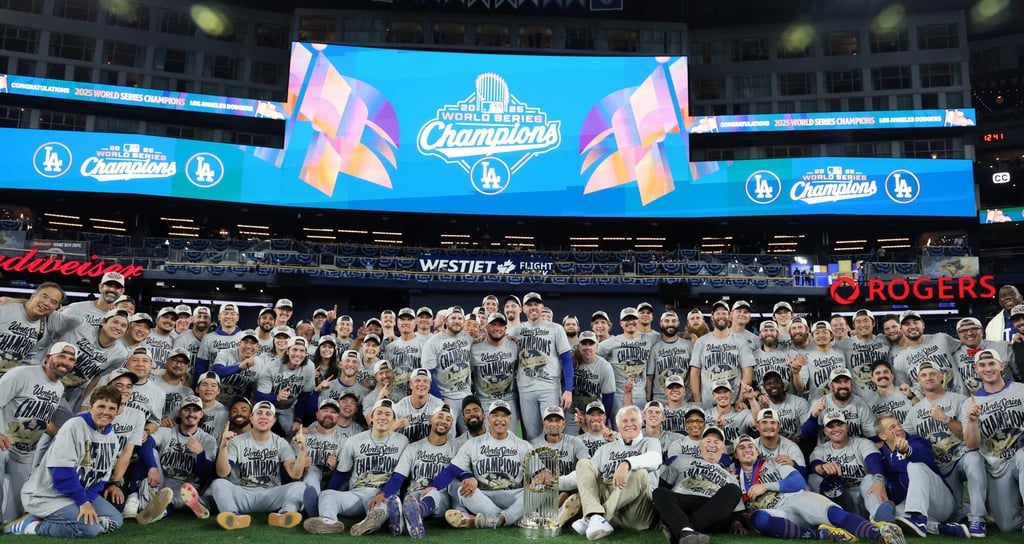The NL Central, Not The Dodgers, Are Ruining Baseball
Don't hate the Dodgers just because your owner is cheap.
SPORTS
Serafino Diaz
11/6/202510 min read
Congratulations to the Los Angeles Dodgers on their 2025 World Series victory over the Toronto Blue Jays. For the record, I was rooting for the Dodgers. Unfortunately, the offseason will revolve around the narrative that the Dodgers are “ruining baseball”. Since the turn of the 2020s, the franchise has acquired stars such as Mookie Betts, Freddie Freeman, Shohei Ohtani, and Yoshinobu Yamamoto to build what has become one of the greatest collections of talent an MLB team has ever fielded.
What many people forget, though, is that every team had the chance to sign the players the Dodgers have acquired, including the stars listed above. Rather than accept that the Dodgers are the gold standard for how an MLB team should operate, fans complain and say “my team couldn't afford (insert player) because the Dodgers have too much money!” What most fans don't realize is that most MLB owners are billionaires, but some treat their franchises like a retirement fund and operate with the mentality that one big signing will bankrupt their wallets.
Today, we’re going to look at an entire division that embodies the real problem in baseball: ownership that refuses to compete. The NL Central is the perfect case study in mediocrity by choice. Let’s dive in.
The Chicago Cubs Got Their Ring And Stopped Spending Money
Let's start with my own team, the Chicago Cubs. During the rebuilding process that culminated in the team’s 2016 World Series Championship, the Cubs were big spenders. They signed Jon Lester to a $155 million deal, gave Jason Heyward a $184 million deal (although it was a disaster), and gave Ben Zobrist, the eventual World Series MVP, a $56 million deal. They also made a risky move at the 2016 trade deadline to get reliever Aroldis Chapman, knowing that he would become a free agent at season’s end. The 2014 and 2015 offseasons, as well the Chapman acquisition, proved that when they spent big, they won big.
Since 2016, however, the organization has forgotten how to spend money. Sure, they signed Yu Darvish to a $126 million deal and Dansby Swanson to a $177 million deal, but outside of that? Nothing. The 2018-19 offseason is Exhibit A. After the Cubs offense went anemic to end the 2018 season, it was reasonable to think that the team would add another solid bat or two to improve the unit. What did they do? Sign a washed-up Daniel Descalso. That was it. Descalso did next to nothing for the Cubs and didn't play a game for them after June 30, 2019.
During Shohei Ohtani’s 2023 free agency, the Cubs were one of the finalists for his services, and in typical post-2016 Cubs fashion, they screwed it up. They offered Ohtani a ten-year contract worth $500 million, but balked at Ohtani’s request for a deferred contract. In other words, they took themselves out of the running by being cheap. The following offseason, the Cubs traded for Kyle Tucker, even though they knew he'd be a one-year rental. You would think that they would go all in and surround Tucker with great players, right? Nah. President of Baseball Operations Jed Hoyer prioritized “value signings” akin to the likes of Matthew Boyd and Carson Kelly.
Dear Cubs, if you keep penny-pinching, you’re inching closer to becoming the 1985 Chicago Bears of baseball. One iconic championship, a decade-plus of “what if” and a fanbase left clinging to nostalgia because ownership got scared of its own success. You’ve got the farm system, the city, the revenue, and the fanbase. The only thing you're missing is the part that requires trying. Start spending and competing again. Stop acting like the White Sox.
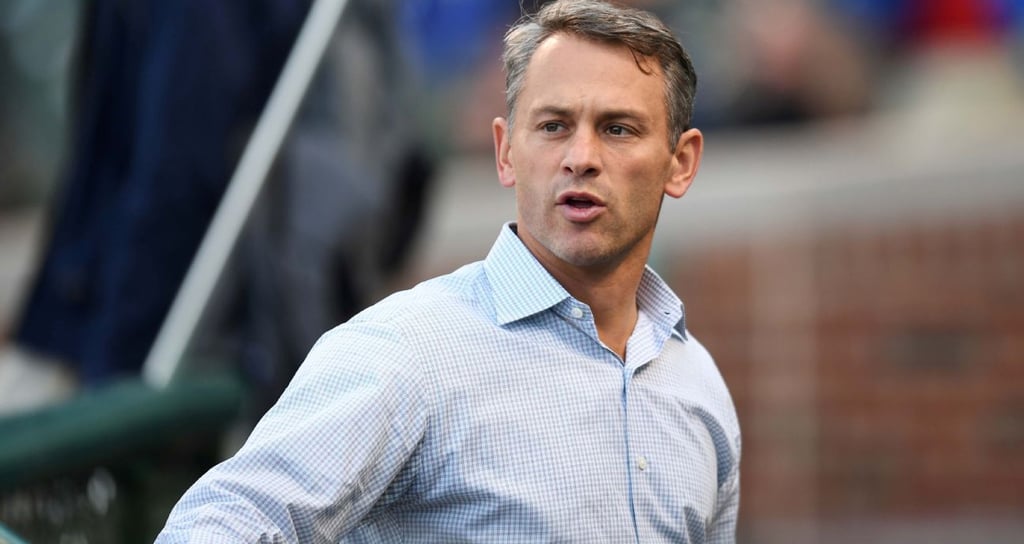

The Milwaukee Brewers’ Goal Is Saving Money, Not Winning Titles
You would think that the Milwaukee Brewers, who have been to the playoffs all but one year since 2018, would've won a World Series by now given that they're a perennial contender, right? Wrong. Their priorities aren't focused on winning. Instead, their $2 billion owner Mark Attanasio likes to treat his baseball team like a savings account that he’s afraid to touch. The goal isn’t to win — it’s to minimize risk by clipping coupons.
After a surprise 2017 season that saw the team barely miss the playoffs, the Brewers went all in for 2018. They traded for Lorenzo Cain and Christian Yelich in the offseason. At the trade deadline, they added Mike Moustakas and Jonathan Schoop. The end result was an NL Central title and a trip to the NLCS that saw them push the powerhouse Dodgers to seven games. Their main takeaway from that year? Let's never do it again, even though we proved that being aggressive works out.
Ever since 2019, the Brewers’ motto has been the same: make the playoffs, win the division, maybe win a playoff series, and shed payroll. Any elite player that has been developed by this team is immediately traded once they cost money, including but not limited to Josh Hader, Devin Williams, Corbin Burnes and Willy Adames (he left as a free agent, but you get my point).
The Brewers might trade Freddy Peralta this offseason, because paying him an $8 million club option is a financial crisis. Trevor Megill could also be on the chopping block because he might cost more than the $2 million he made in 2025. The funniest scenario of the bunch? The Brewers are declining William Contreras’ $12 million option for the sake of sending him back to arbitration and saving a few bucks. The total cost to keep all three is $22 million, the equivalent of pocket change to teams like the Dodgers and Phillies, teams that actually spend to win.
As a Cubs fan, I want to congratulate the Brewers on their NLDS win over us. If that was your World Series, good for you. Just know that as long as Attanasio and his minions continue to cut costs, the Dodgers making the Brewers into their personal punching bags will become a tradition, not a one-off.
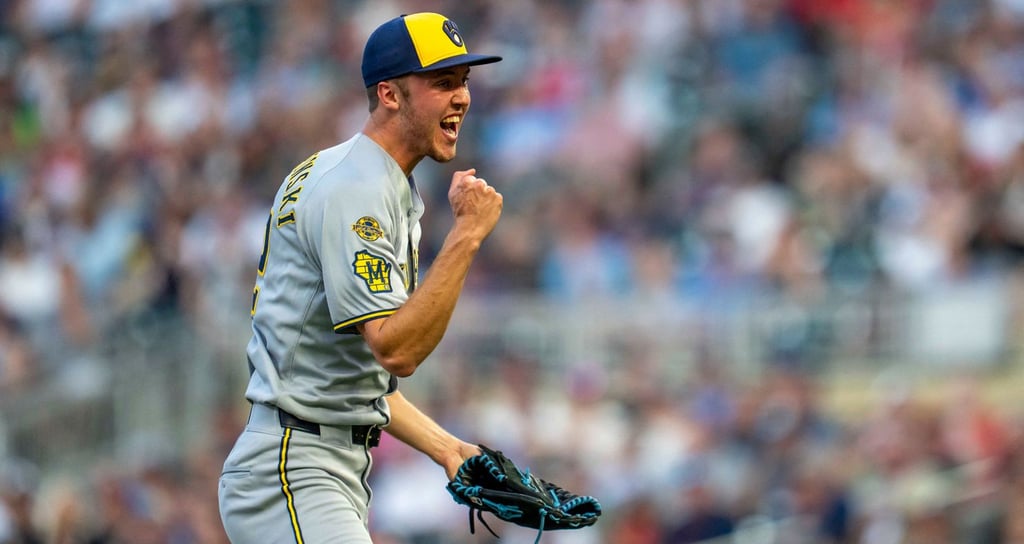

The Pittsburgh Pirates Are a Farm System Disguised As a Major League Team
The Pittsburgh Pirates are the personal farm system for teams that spend real money to sign good players. Why is this? Bob Nutting, who has a net worth of $1.1 billion, is Major League Baseball's Dan Snyder — the worst owner in the sport who refuses to pony up the dough once a good player costs real money.
When Gerrit Cole became an ace, he was gone. Same for Tyler Glasnow, who is now on the Dodgers after the Rays, another cheap team, also refused to pay him. Austin Meadows, Jameson Taillon, and Joe Musgrove all met the similar fate once they demanded real money. Andrew McCutchen was traded in his prime, but they brought him back once he was cheap again. Their richest contract in franchise history belongs to Bryan Reynolds, who signed an eight-year extension worth a total of $106.75 million back in April 2023.
If it wasn't obvious already, Paul Skenes is already halfway out the door. The conversation isn’t if the Pirates will trade him — it’s when. Did I mention that Skenes is from Southern California? I'm sure that the Dodgers have already written the check to secure his services. Unlike Pittsburgh, they’re not allergic to paying superstar talent.
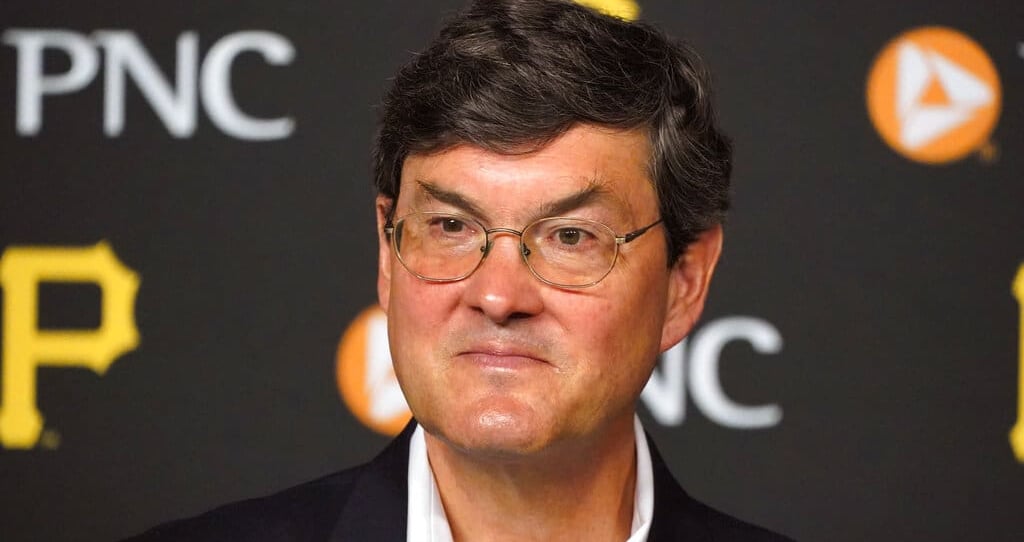

The St. Louis Cardinals Have Made Tradition, Not Winning, The Priority
The St. Louis Cardinals have 11 World Series rings and pride themselves on following The Cardinal Way. Right now, that way consists of being cheap, refusing to pay their good players once they cost real money, and rarely handing out big contracts (Matt Holliday and Paul Goldschmidt are exceptions, not the rule). There's a reason their best player of the 2000s, Albert Pujols, had to leave to get his well-deserved big payday.
This franchise, despite having one of baseball’s bigger fanbases and nicer stadiums, prioritizes signing bargain bin veterans in free agency and celebrating nostalgia over trying to contend for titles. They act poor, but their principal owner, Bill DeWitt, is worth more than $4 billion. In other words, they can afford to spend money, but choose not to, just like their NL Central counterparts.
The Tommy Edman trade symbolizes where this organization is at right now. Edman is an extremely versatile player that can play anywhere in the field, making him a valuable asset for any team. Unfortunately, Edman started playing good baseball and the Cardinals gift-wrapped him for the Dodgers at the 2024 trade deadline for a bag of barbecue chips and a few expired Dr. Peppers. Edman has gone on to win two rings and an NLCS MVP. The Cardinals are one of the teams whining about how the Dodgers “buy championships”, but ignore the fact that they’re one of the teams supplying them the players to win those championships.
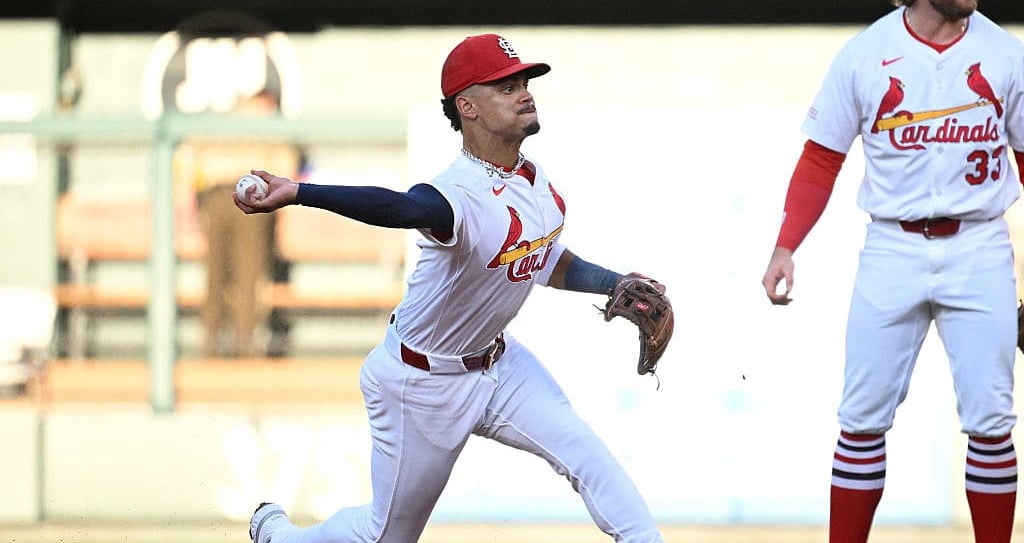

The Cincinnati Reds Pride Themselves On Being Cheap
The Cincinnati Reds are MLB’s original franchise and have a rich history that features multiple championships, most notably, The Big Red Machine era. They're basically the Bears of Major League Baseball. You would think that they'd spend money to maintain this tradition, right? Nah. They have a different type of tradition — being cheap.
When she owned the team, Marge Schott was notoriously cheap. Sure, tickets and concessions were cheap — which was great for fans wanting to attend games — but her front office payroll was consistently the lowest in baseball. She openly complained about paying injured players. She hated the Reds sweeping the 1990 World Series because fewer games meant less revenue. As a result, she refused to pay for a championship celebration.
Bob Castellini, who is worth $400 million as of 2022 (I'll concede that he's one of the poorer owners in the sport), has honored this tradition. Sure, the Reds once gave Joey Votto a $225 million contract, but he is the exception. In reality, the Reds and Pirates are the same franchise — a farm system for other major league teams that spend money. They draft and develop young players such as Johnny Cueto, Luis Castillo, Aroldis Chapman and Eugenio Suarez, then trade them for a few Subway sandwiches and a liter of Pepsi once they cost money. We all know that the same fate awaits Elly De La Cruz — once he inevitably demands the money he has earned.
Yes, the Reds made the playoffs in 2025, but there's a reason why they looked like they didn't belong there. They looked like they were touring the postseason, not competing in it. The Dodgers basically showed up, said “aw, that’s cute,” and ended their season with one punch to the mouth.
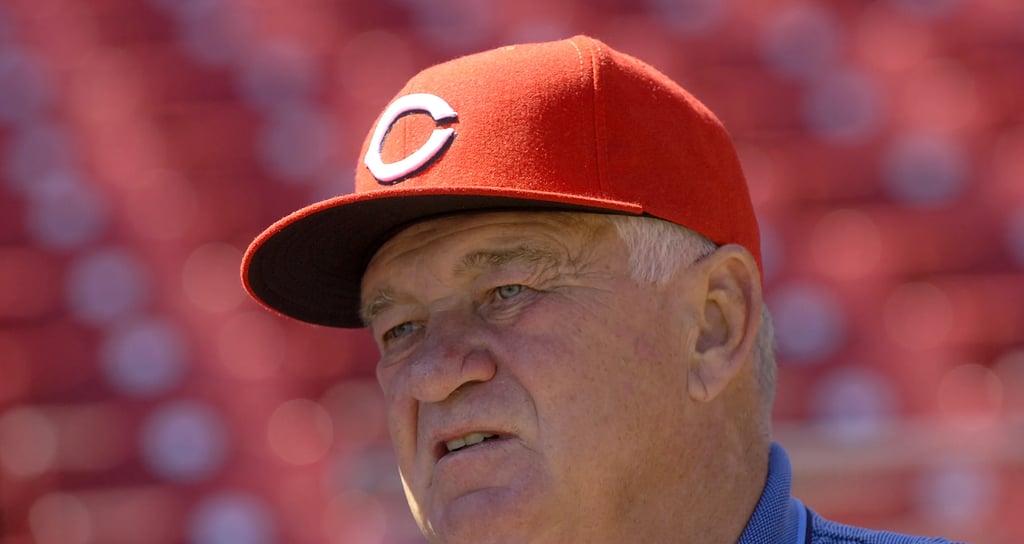

So, Are The Dodgers Really The Problem?
The Dodgers are not what’s wrong with baseball. The entire NL Central is. If the NL Central were a group of high schoolers, the Cubs are the rich kid who won one big trophy in seventh grade, talks about it every day, and now prides themselves on saving allowance money. The Brewers are the kid who could sit at the cool table, but chooses to sit alone with an expired Lunchable because they are too scared to spend money on a real meal. The Pirates and Reds are the kids trading their lunches for spoiled milk and then act confused when nobody takes them seriously. The Cardinals are the kid who peaked in second grade, still talks about it daily, and thinks everyone is still impressed with them. News flash: no one is.
Baseball doesn't have a Dodgers problem, it has an ownership problem. Outside of the NL Central, there are franchises like the Marlins, Rays, Athletics, and White Sox who regularly field teams that have payrolls under $100 million. It's worth noting that the White Sox and Athletics have never given a player a contract worth more than $100 million. I'd argue baseball needs a salary floor, not a cap. It will force owners to spend big league money and invest in their team. I'm not saying that every team has to spend the money that teams like the Dodgers, Phillies, Mets, and Blue Jays do — I'm saying that owners need to spend enough money to field rosters that can actually challenge the Dodgers, rather than choosing to pinch pennies and allowing the league’s cash-rich teams to snag the elite players they could've signed.
The Dodgers didn’t buy their roster — they took advantage of everyone else’s cheapness. The Red Sox thought Betts was too expensive. The Dodgers said, “Cool, we’ll take a generational superstar for pennies on the dollar.” The Braves didn’t want to give Freeman a sixth year — the Dodgers happily did it. The Rays, Padres, and Giants refused to pay Blake Snell, so the Dodgers stepped in to do it. The Cubs fumbled their chance to sign Ohtani. The Pirates and Rays didn't want to pay Glasnow. The Cardinals traded Edman for a broken TV.
And to those yelling “the Dodgers pay everyone!” — they don’t. They traded for Manny Machado, knowing he would be a half-season rental, and then let him walk. They let players like Corey Seager, Trea Turner, and Zack Greinke walk. They passed on massive deals for Gerrit Cole, Bryce Harper, and Juan Soto. If the contract isn’t smart, they don’t do it. They only spend big when the player is worth it.
Don't blame the Dodgers for operating like an actual MLB team. Blame the teams that act like competing is optional. Blame your team’s billionaire owner that pretends to be broke. Blame the front offices who care more about trimming payroll over winning rings. The Dodgers aren’t ruining the sport — they’re exposing everyone who is too cheap, scared, and/or lazy to keep up. If your team keeps watching the Dodgers win big every year, that’s a YOU problem.
Serafino Diaz is a writer at Chaotically Intolerant, Phoenix's finest Vikings, Bucks, and Cubs fan, traveling everywhere I can.
